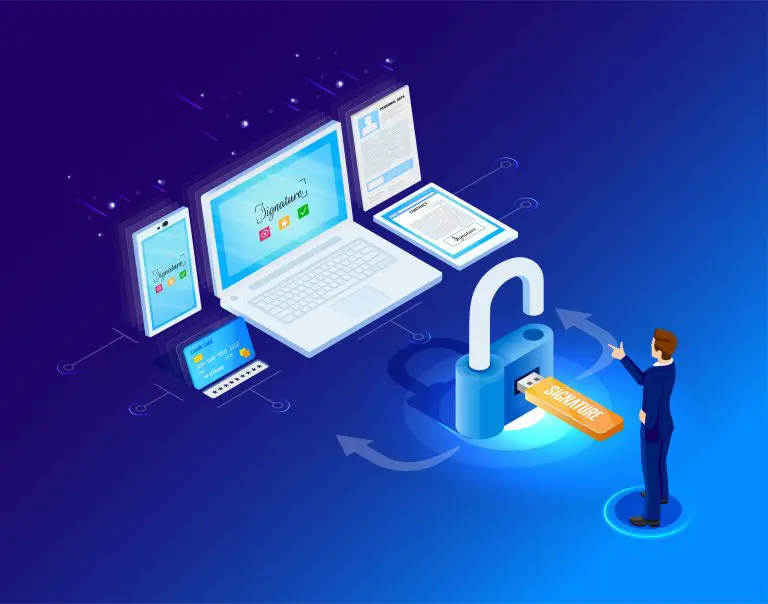We recognize that not every organization requires a full-time in-house Chief Information Security Officer (CISO).
Nonetheless, having a knowledgeable and dedicated leader to guide your cybersecurity efforts is essential.
With Storata, you can access a seasoned security expert who leverages their extensive experience in cybersecurity and various industries to assist your business in developing and executing a robust information security program.


We recognize that not every organization requires a full-time in-house Chief Information Security Officer (CISO).
Nonetheless, having a knowledgeable and dedicated leader to guide your cybersecurity efforts is essential.
With Storata, you can access a seasoned security expert who leverages their extensive experience in cybersecurity and various industries to assist your business in developing and executing a robust information security program.
Employing a full-time in-house CISO can be costly and often entails a complicated and time-consuming recruitment process. Overcome these obstacles with Storata’s virtual CISO, available on a monthly retainer tailored to the level of service you require.

Employing a full-time in-house CISO can be costly and often entails a complicated and time-consuming recruitment process. Overcome these obstacles with Storata’s virtual CISO, available on a monthly retainer tailored to the level of service you require.


Your committed, remote, outsourced CISO makes sure that every facet of your organization’s security operates as it should while you concentrate on managing your business.
A cloud-based CISO can plan:
Your committed, remote, outsourced CISO makes sure that every facet of your organization’s security operates as it should while you concentrate on managing your business.
A cloud-based CISO can plan:

Understanding your organization’s unique threat landscape is crucial before hiring a Chief Information Security Officer (CISO). Your cybersecurity needs will align with the size and complexity of your organization. By assessing your threat environment first, you can effectively prioritize your security measures and ensure that you’re making informed decisions that match your specific requirements.
Enhanced cybersecurity policies are essential for helping employees grasp the importance of safeguarding data and applications. To establish and sustain effective information security policies and procedures within your organization, you may benefit from the expertise and experience of a Chief Information Security Officer (CISO). This guidance ensures that your security framework is robust and continuously maintained.
Organisations in specific industries, such as healthcare and finance, manage and sometimes store vast amounts of sensitive information. As a result, they face stringent regulations and need a more comprehensive cybersecurity solution compared to standard businesses. This heightened focus on security is essential to protect critical data and ensure compliance with industry standards.
Cybersecurity has emerged as a top priority for businesses worldwide, driving up the demand for skilled professionals. However, the availability of qualified information security experts is falling short of this demand. Finding the right expertise at a reasonable cost can be a daunting challenge for organizations. In this context, a Virtual Chief Information Security Officer (CISO) can be an ideal solution, providing the necessary experience and guidance without the financial burden of a full-time hire.
One of the most important responsibilities of a CISO in your company is to offer strategic direction for your cybersecurity programme. A CISO’s duty is to ensure that businesses continue to adhere to cybersecurity standards, policies, rules, and laws in addition to providing assistance.
Verify that the goals of the cybersecurity programme at your company align with the goals that the company wants to accomplish. Ensuring effective communication between security professionals and important stakeholders is one of this role’s primary responsibilities.
CISOs are crucial in giving upper-level management a unified and complete picture of their organization’s cybersecurity posture as well as insight on major cybersecurity trends to business executives.
When a cybersecurity problem is discovered, a CISO supervises the diligence with which internal teams address it. A CISO is supposed to intervene and oversee incident response in the event of a significant security breach.
The CISO is in charge of crisis management. It is the CISO’s duty to provide the important internal and external stakeholders with some clarity during a security issue.
One of a CISO’s other main responsibilities is to put current business continuity and disaster recovery strategies into action. Ransomware occurrences, for instance, might create downtime while the firm recovers. Security incidents can have a variety of repercussions on an organization’s well-being. After a security event, a CISO may be extremely important in ensuring company continuity.
Another important responsibility of a CISO is to foster a strong information security culture inside their company. To do this, they should serve as thought leaders and consistently share their strategy and goals. Communications may be efficiently tailored to different departments within the company and made topical for the target audience.
Working with suppliers and service providers poses a serious danger to the information security of your company. To lessen these threats to information security, a CISO may assist in making sure that uniform vendor management procedures are in place.
The efficient and effective use of funds allotted for a company’s cybersecurity programme is another duty of the chief information security officer (CISO). When it comes to making wise cybersecurity investment decisions, a CISO may assist a company.
Many third-party assessments are delivered through either spreadsheets or complex tools that require extensive training to navigate. As a result, the responses often go unfilled or are simply filed away and forgotten.
The Virtual CISO supplier tool enables you to evaluate suppliers based on their criticality level, customize assessments for each tier, and incorporate your own set of questions. Once your questionnaire is ready, you can easily import your supplier list and watch your maturity metrics improve.
You can monitor your overall supplier security posture through the dashboard or delve into individual assessments, collaborating with your partners to help them reach their security goals.
After nearly ten years of security awareness solutions on the market, the 2021 Verizon Data Breach Investigation Report indicated that a staggering 85% of breaches were caused by human error.
A Variety of Awareness efforts initiatives tend to lose steam after a few months and often fail to secure buy-in from users and executives.
Virtual CISO adopts a strategic approach that emphasizes engaging customers through multiple channels, putting YOU, the IT leader, at the heart of your strategy. Additionally, the platform offers comprehensive metrics to monitor your progress and growth gradually.